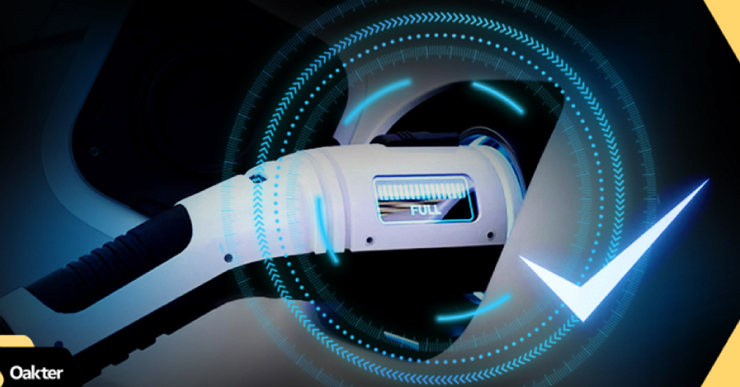
Importance of Quality Control in EV Charger Manufacturers: Ensuring Safe and Reliable Products
The electric vehicle (EV) industry is rapidly growing as more and more people embrace this eco-friendly alternative. As a result, EV chargers are becoming increasingly important for electric vehicle owners.
In fact, a recent report estimates that the global EV charging infrastructure market will reach $190.0 billion by 2030.
However, it’s not just about having more EV chargers available. Ensuring these chargers are safe and reliable is critical for EV charger manufacturers and consumers, and that’s where quality control comes into play.
In this article, we’ll discuss the importance of quality control for EV charger manufacturers. We’ll also explore faulty EV chargers’ potential risks and hazards and explain how quality control measures can help prevent these issues.
So, let’s dive in!
EV Charger Manufacturers: Role of Quality Control

Quality control is a crucial part of the manufacturing process for any product, and EV chargers are no exception. It involves a series of procedures and measures to ensure the product meets the required standards and specifications.
In the case of EV chargers, the potential risks and hazards associated with faulty products can be severe.
For example, a faulty EV charger could cause electric shocks, fires, or even explosions, which can be extremely dangerous for users and damage their vehicles.
In addition, defective chargers can damage the battery of an electric vehicle, reducing its performance and lifespan.
Performing quality control as EV charger manufacturers: an outline
This is why quality control measures are essential in EV charger manufacturing.
By implementing quality control procedures and adhering to safety standards and regulations, EV charger manufacturers can prevent potential risks and ensure their products are safe and reliable for consumers.
Regular testing, inspections, and documentation can help identify and address defects in the manufacturing process, reducing the likelihood of product recalls, liability issues, and damage to the manufacturer’s reputation.
EV Charger Manufacturers: Benefits of Quality Control
Implementing quality control measures in EV charger manufacturing can provide several benefits, including:
1. Improved product performance and longevity
Quality control measures can help EV charger manufacturers identify potential defects or issues before they become significant problems. This can help ensure that the EV chargers perform reliably and last long.
2. Reduced risk of product recalls and liability issues
By implementing quality control measures, manufacturers can reduce the risk of product recalls and associated liability issues and this can help protect both the manufacturer and the consumer.
3. Enhanced customer satisfaction and trust in the brand
Providing safe and reliable EV chargers through quality control measures can help build customer trust and satisfaction. This can lead to increased brand loyalty and repeat business.
EV Charger Manufacturers: Some Quality Control Strategies
There are several quality control measures that EV charger manufacturers can implement to ensure the safety and reliability of their products. These include:
1. Inspection and testing procedures
All components of the EV charger should be thoroughly inspected and tested to ensure that they meet the necessary performance and safety requirements.
2. Compliance with safety standards and regulations
EV charger manufacturers should ensure the chargers comply with all relevant safety standards and regulations.
3. Documentation and record-keeping processes
Manufacturers should maintain detailed records of all quality control measures taken during manufacturing. This can help ensure traceability and accountability in case of any issues or defects.
Implementing Quality Control for EV Charger Manufacturers: Challenges and Solutions
Implementing quality control measures in EV charger manufacturing can be challenging, particularly when it comes to balancing quality with profitability.
However, by investing in quality control measures, manufacturers can ultimately save money by reducing the risk of product recalls and associated costs.
Personnel training
Training and education of personnel are also critical to ensuring that quality control processes are followed. EV charger manufacturers should invest in ongoing training and education to ensure their personnel are up-to-date on the latest quality control practices and procedures.
Evaluate feedback and data
Strategies for addressing potential defects and improving quality over time should also be implemented. This can include analysing customer feedback and data to identify areas for improvement and implementing corrective actions to address any issues or defects.
How to Choose the Best EV Charger: 4 Key Features to Look For
A superior EV charger is not just about delivering power to an electric vehicle but also about providing a convenient and reliable charging experience.
Here are some key elements that make a superior EV charger:
1. Fast charging capabilities
EV drivers want to charge their vehicles quickly and get back on the road. A superior EV charger should have fast charging capabilities, such as Level 2 or Level 3 charging, to provide a quick and efficient charging experience.
2. User-friendly interface and compatibility
EV chargers should be easy to use and compatible with numerous vehicle models. A user-friendly interface can simplify the charging process, while compatibility with multiple vehicles ensures drivers can charge their EVs regardless of the make and model.
3. Durable and weather-resistant design
EV chargers are typically installed outdoors, exposing them to harsh weather conditions. A superior EV charger should have a durable and weather-resistant design to withstand extreme temperatures, rain, snow, and other environmental factors.
4. Smart charging features
Smart charging features such as remote monitoring and scheduling can make the charging experience even more convenient for EV drivers.
Features like remote monitoring and scheduling can allow drivers to check the status of their charge, schedule charging sessions, and receive notifications when charging is complete.
Ensuring Quality and Safety for EV Charger Manufacturers: A Partner You Can Trust
Quality control is critical in ensuring the safety and reliability of EV chargers. Therefore, EV charger manufacturers must emphasise this to build a sustainable production line of quality chargers.
As an expert in IoT manufacturing and a trusted white-label partner, Oakter can substantially impact the EV charger manufacturing industry by prioritising quality control measures in its manufacturing process. We also export 500k+ products every month.
If you’re looking for sustainable and affordable manufacturing solutions to meet your EV charger manufacturing needs, Oakter is the partner you can count on.
Contact us today to learn more about how we can help you achieve your manufacturing goals with the highest quality and safety standards.

